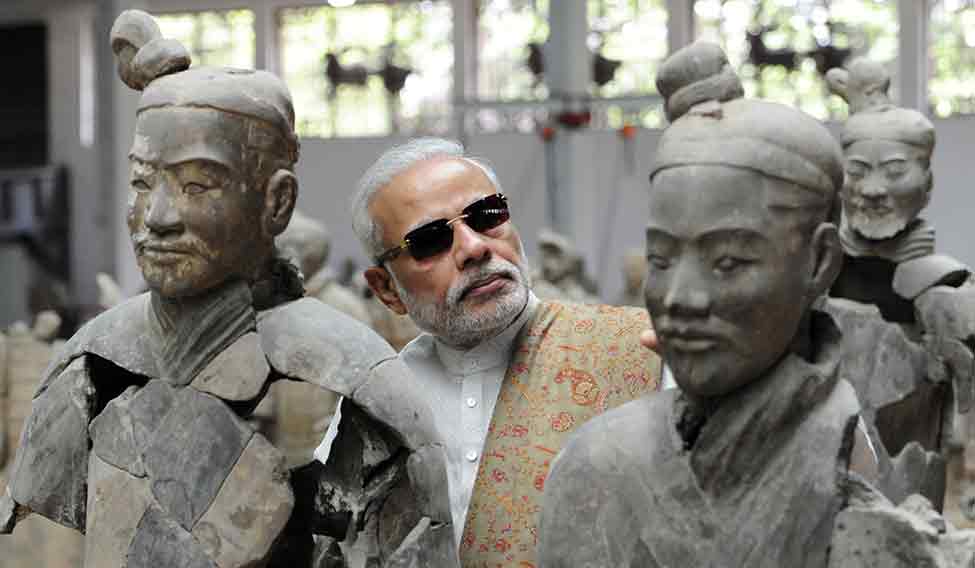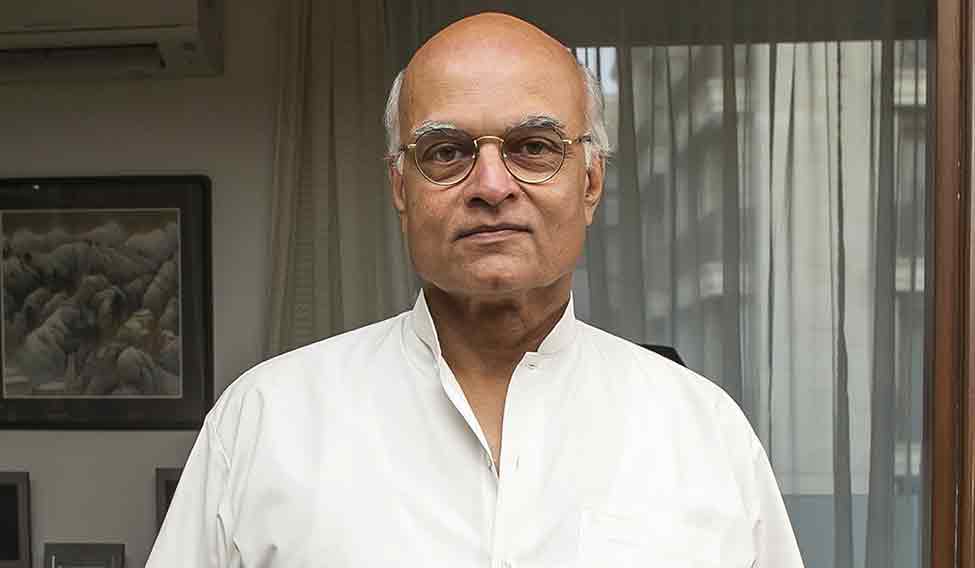Interview/ Shivshankar Menon, former national security adviser
Do you see India becoming a global power?
If you are a real power, you don’t need to ask people for endorsement of your status. Power is the ability to get things done and to create outcomes. And that is relative. It comes and goes in history. For me, status is not the present goal of Indian foreign policy. Chasing status is a beauty contest. Our job is to transform India, to make India a strong, prosperous and modern country. That is what foreign policy should be about, and that requires the accumulation of power, not chasing status.
India’s neighbourhood will be very important [to accomplish this]. But that is only one component. The primary factor is yourself, your own condition and capability. But the immediate neighbourhood does matter, whether you are in a crowded neighbourhood, whether you get along with most of your neighbours, not all. Different powers have different relationships with their neighbours. Kautilya says there are ways to manage your neighbours. It can vary. But that part of your foreign policy is very important, of how you handle neighbours.
The Pakistan problem is quite peculiar because we are dealing with many Pakistans. There is the Pakistan of the ordinary citizen and civil society, of the businessman, the civilian politician, the Pakistan Army and the ISI, the jihadi tanzeems, and so on. We should always engage Pakistan, at least bits of Pakistan, because it is our neighbour. And whether we like it or not, we will always do things with parts of Pakistan, one or two or many. It is a great gain if we have peace with Pakistan. We came very close in 2005-06, and the effort is worth making because it is a considerable gain. But I don’t think this will determine India’s future.
The factors that will determine India’s future are the geopolitics around us, which we are not bad at managing. If you look at how we have managed changes in the past, we know how to deal with those. It is also the geoeconomics—this whole new economic order that we see forming globally after the 2008 economic crisis. This is a function of our economic policies, our trade policies. We are witnessing the globalised economy fragment into the Trans-Pacific Partnership, the Regional Comprehensive Economic Partnership, and you have seen what is happening in Europe. So how are we going to deal with that fragmentation? We are not part of any bloc. Our regional free trade area, SAFTA, has barely taken off and accounts for such a miniscule amount of our trade that it is not the answer. This is a huge area of policy-making that needs attention.
The other factor is energy. Look at the volatility in energy markets in the past five years. The oil price has gone from $150 to $30 a barrel and now is back to $50. There is no question that in order to grow we will need to import more and more energy in various forms until we can have an energy revolution and move away from fossil fuels. But we still need to build a bridge to that moment. That being the case, energy diplomacy is going to be critical to our future and India’s transformation. It will determine whether we can do all the other things we must: urbanisation, creating a manufacturing base and creating jobs in India. For all that, we need energy. If you consider climate change, that is a subset of our energy policy. People don’t always see that as part of traditional diplomacy, but it actually is. And it should be a part of how we deal with the world. It has to be integrated.
After the end of the Cold War in 1989, we had a unipolar moment where the US was the sole super power. Since then, and especially after 2008, with the western economic crisis, you now actually have several major powers. You have this odd situation where the US is predominant. But there are many other powers in the system who actually have blocking ability. They can’t change the system, they can’t make a new system as yet, whether it is China, India, Japan or Germany. But they have the ability to influence outcomes, and when they form coalitions and work together, they can do things and they can block outcomes that they don’t like or that affect them. Whatever you want to call them, these are major powers. So India has this moment of opportunity where we can work with all of them. Space has opened up to achieve our own goals if we are clear about our goals. You see this situation in various contexts. At one level what the Chinese are doing in the South China Sea is also opportunistically using this space that has opened up.
The international system is in turmoil. You see different countries doing different things. India has recognised that things have changed. We have done that before at moments of transition in the international system. We did that when the Cold War began and we chose non-alignment as a policy. We did it at the end of the Cold War when we immediately adjusted policy—we liberalised and opened up the economy and shifted the direction of foreign policy. Now we are going through the third big change or shift in the global system. India didn’t build this system. It has worked for us in the two decades before 2008, but after 2008 the makers of the system and those who ran it are changing the rules and they seem to have lost confidence. Look at TPP, changing the rules and raising standards. Now there are suddenly new demands in various international forums. So we have to look at how to adjust to this new situation, where the globalised economy is being fragmented and there is a new set of standards, and the global system is adjusting to a new set of powers.

China is critical to India’s future. It is a fact of life. It is the second largest, perhaps the largest, economy in the world today. It is our neighbour, our biggest neighbour. It is in all our markets. We have seen what has happened to commodity and oil prices in the last few years thanks to China. There is no question that China is a fact of life just as the US is a fact of life. If we want to transform India, this is a fact of life that we have to deal with. We have to be clever, we have to find ways of making those facts work for us to help our transformation of India. There are ways of doing so. We have a terrible imbalance [in trade] with China and must find a way of dealing with it. Broaden our relationship from trade into investment. Get them to manufacture in India. I think that for the foreseeable future we will have a relationship with China which will have some elements of cooperation and some elements of competition. That is fine. I think we have to look at it without emotional lenses. If we look at it as a fact, how to deal with it and how to use it for India’s transformation, then I think you will come up with a certain set of responses.
How important will China and the US be in the next few years. Also, what are the other factors that India needs to look at?
We in India do not want to be China. We made that choice years ago. We are different countries. We are not going to be China. Just like we are not going to be the US either. Are we going to be a Japan? No. I think that if you are not happy with where you are, then concentrate on the kind of India you want to build. Stop worrying whether you will be China, the US or someone else.
If China is a big fact, then America is an even bigger fact. The US is critical to India’s transformation in every way, economically, politically, and in other ways, wielding maritime security across this whole belt. Where we have similar interests with the US, we will work together on these things. One problem is that when we look west of India we see increasing instability, the fracturing and demise of state institutions. We see not just the rise of terrorism and radical extremism, but also the withering away of the state. And it is getting harder and harder to know whom to deal with—it is Pakistan on an even a bigger scale. It hasn’t reached Pakistan’s levels of incoherence as yet, but that is a different set of policy challenges from those to our east. When you think that we now have almost eight million Indians living and working in the Gulf, when we depend on West Asia for about 64 per cent of our oil imports, you will realise how important that region is to India, and one really starts worrying. That is a real challenge. That is the hard part.







